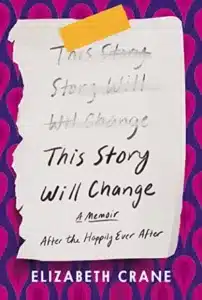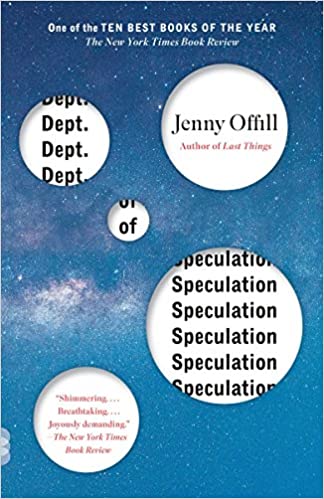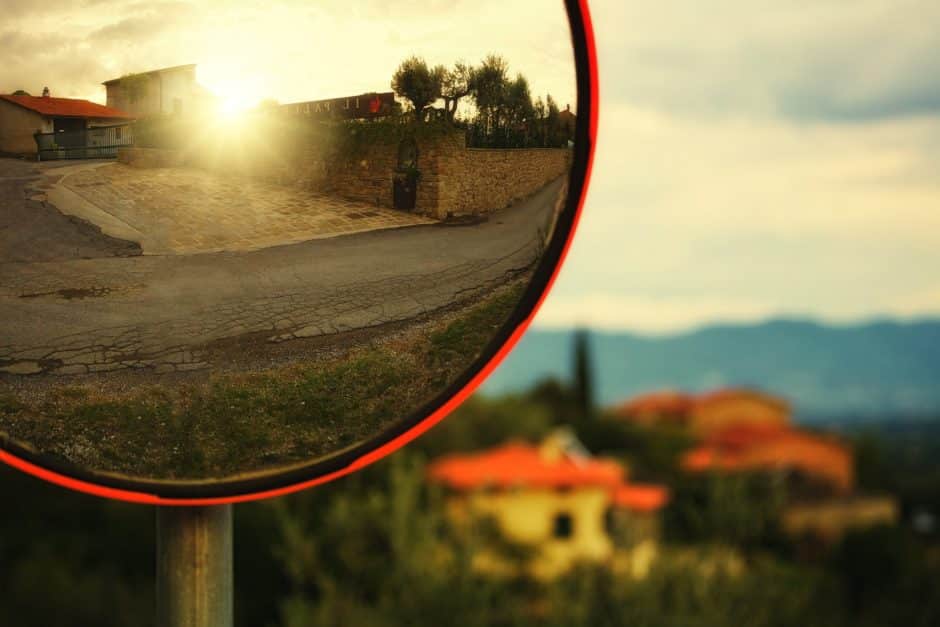I don’t know how long the highway patrol car had been following me, but when I glimpsed the flashing light in my rearview and heard the siren squawk, I switched off the music and pulled over. My heart raced. It was a late summer evening, the air thick and warm, but I felt cold; my teeth chattered. Nausea rose up and engulfed me, and I wondered if I would pass out. It had happened more than once over the last year, these attacks.
The patrol car parked behind me, filling my vehicle with light. An officer in a grey uniform and tall black leather boots strode over to my passenger side window. He bent down and beamed his flashlight in my face.
“Ma’am, are you aware that you were driving erratically?”
Just minutes before, I was tooling down this Northern California highway, wide open windows, music blasting. My fifty-year-old Mercedes had no official air conditioning, other than what I’d occasionally manage to jury-rig, namely Ziplock bags full of ice cubes tucked around my body, the intense cold delicious on my hot skin. There was to be no icy relief this night, and the sweat poured out and soaked my face and neck, trickling down my back, tickling my inner thighs. Everywhere felt itchy.
Despite the heat, I was happy to be on the road. I’d recently busted free from a three-year relationship that had allowed no space for forays, solitary or other. I still struggled to speak to people without lowering my eyes, a habit I’d learned so as to avoid appearing interested in other men.
The problem on this night began when I noticed my underwear chafing where crotch meets thigh. That morning I’d donned a skirt for strategic air flow, but the moment had arrived for the panties to come off. Besides, I was only a few miles from my new home. Who would know I’d gone commando, and who’d care? Now I could do as I liked. I kept my eyes on the road and steered with one hand as I shimmied my knickers below my hips, slid them down my legs, un-looped them over each foot before placing them on the passenger seat with a victorious flourish.
Relieved of constrictions, I was taken with the marvelous sensation of air upon skin. Stars sidled out and took their places in the darkening sky, beckoning me to leave the past behind and reorient myself in their direction. I tried to conjure the woman I was before she’d been compelled to go underground: she was curious, a jokester, someone willing to take chances. A woman who spoke freely without a second thought. She wasn’t one to duck-and-cover, to live in fear of the next outburst, the next flinging of her possessions into the street, the next haunted night. Now I could re-inhabit the old me. I could drive all night if I chose. Who’d stop me?
Just an officer who wanted to know why my car had strayed over the yellow line.
With a practiced effort, I steadied my voice. “I was just, oh, you know, taking off my underwear,” I said with a forced chuckle.
I motioned to the offending article on the seat and gave a sheepish shrug. “Wait until you hear this one,” I pictured him telling the others back at the station. But the officer wouldn’t budge. Humor won’t help me here, I realized, a fact that always scares me.
“I’ll need to see your driver’s license.”
I froze. Had I brought it? For months I’d been skittish and absentminded, forgetting to turn off the stove, to lock the front door, to even eat or sleep. I’d also forgotten exactly why I was living with someone who could alternately love and terrorize with such skill that the swing from one to the other was as hypnotic as a pendulum.
I rummaged in my handbag, a jumbled mess. A jar of sparkly powder, the kind that women sometimes brush across their cheekbones and collarbones, had found its way into my bag. I’d never owned such a beauty product before. Maybe a previous girlfriend had left it behind in a rush and in my own rush to run away, I’d grabbed it by mistake. The lid had come off and the entire contents had spilled inside my bag, coating everything with a sheen.
I located my driver’s license, brushed it off and handed it to the officer. It was so thick with sparkly powder he couldn’t read it. He tried to rub it off and spread it all over his hands, muttering under his breath. Panic ricocheted through me like a pinball. I took deep breaths, methodically slowing my pulse down to the beat of mere dread. Over the past two years I’d learned to survive by keeping quiet, by doing as I was told, by playing dead.
“Any alcohol tonight, ma’am?” the officer asked.
“Only a beer,” I said. “Hours ago.”
“Are you sure about that?”
In one quick motion he thrust his whole torso through the window, into my car. I gasped and pulled back, expecting a blow.
“I want you to follow my finger with your eyes,” he said.
I locked my eyes on his finger as it swung back and forth, to and fro, the only thing that mattered in the world, shimmering with thousands of pinpoints of refracted light. For a moment I forgot where I was.
We’d take road trips to Nevada to buy fireworks. We’d stop at an old red barn in the middle of nowhere and buy all the mortars they had, stuffing the trunk. We’d drive back at night, crossing the state line on a dark highway lit by stars. We’d wait for the first rain, then I’d set off the mortars on a mountain top near his house, lighting each fuse with a rebel yell, and people in the valley below would hoot and holler and shoot their guns in the air. I could feel his smile in the dark as he watched my pleasure in the violent noise and the floral bursts. Fire-dahlias, we called them, back when he liked my wild ways.
The officer’s sparkle-covered finger had stopped moving.
I looked up into his face, just inches from mine. He had hazel eyes and slicked-back hair the color of an old penny, and pale, freckled skin. He stared back at me, motionless, as if deciding something. I could smell his sweat mixed with coffee and car exhaust, the scent of secret burdens. I’d always been drawn to a man’s pain, determined to hunt it down and carry it away like a hero, though in the end the trying would always leave my heart sore. Even now, I lit up from the lack of shared history between this stranger and I, the mystery yet unraveled. The corners of the officer’s mouth turned up ever so slightly, and I felt my body go limp. We are gods in one another’s lives: This, I know.
The officer pulled himself back through the passenger car window and recalibrated, then handed me my license.
“Be careful out there,” he said.
He waited for me to start my car and followed me for a while as I continued north on the highway, then he made a u-turn across the yellow line and headed in the opposite direction.
I pulled up to the curb next to my new home, a tiny hideout with a patio shaded by a magnolia tree. A string of lights hung from the branches, illuminating the path to my door. I called my home the Lily Pad. A good place to land. Next door lived a baby who was just learning to talk. “No, no, no, no, no,” he liked to say, his parents laughing at his newly-discovered ability. I had decided I would not be lonely here. I would court solitude like a gallant. I would explore how the air feels on my skin when I move through space in the ways that I alone would choose.
Melinda Misuraca’s work can be found in Hidden Compass, High Times, the Best Travel Writing series, Traveler’s Tales, Craftsmanship, Adirondack Review, Natural Bridge, Portland Review, and elsewhere. She writes and teaches in California and the EU.
***
Wondering what to read next?
This is not your typical divorce memoir.
Elizabeth Crane’s marriage is ending after fifteen years. While the marriage wasn’t perfect, her husband’s announcement that it is over leaves her reeling, and this gem of a book is the result. Written with fierce grace, her book tells the story of the marriage, the beginning and the end, and gives the reader a glimpse into what comes next for Crane.
“Reading about another person’s pain should not be this enjoyable, but Crane’s writing, full of wit and charm, makes it so.”
—Kirkus (starred review)
***








